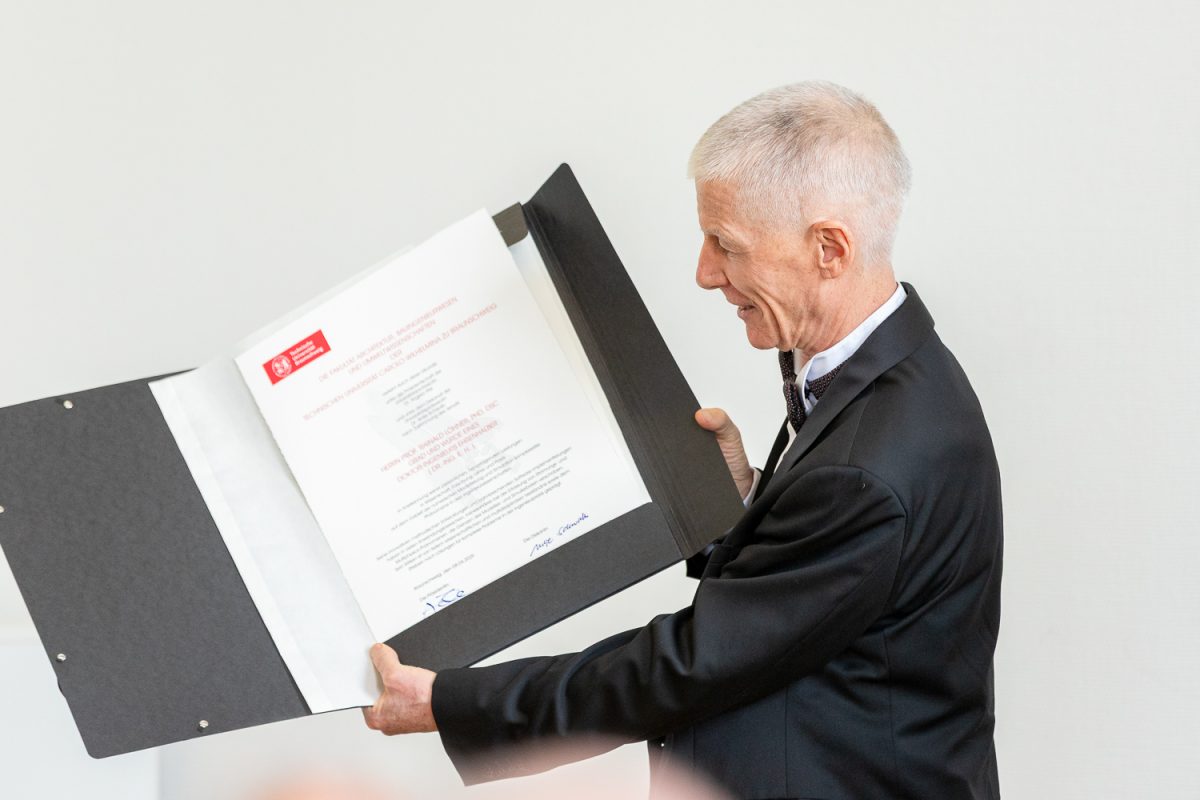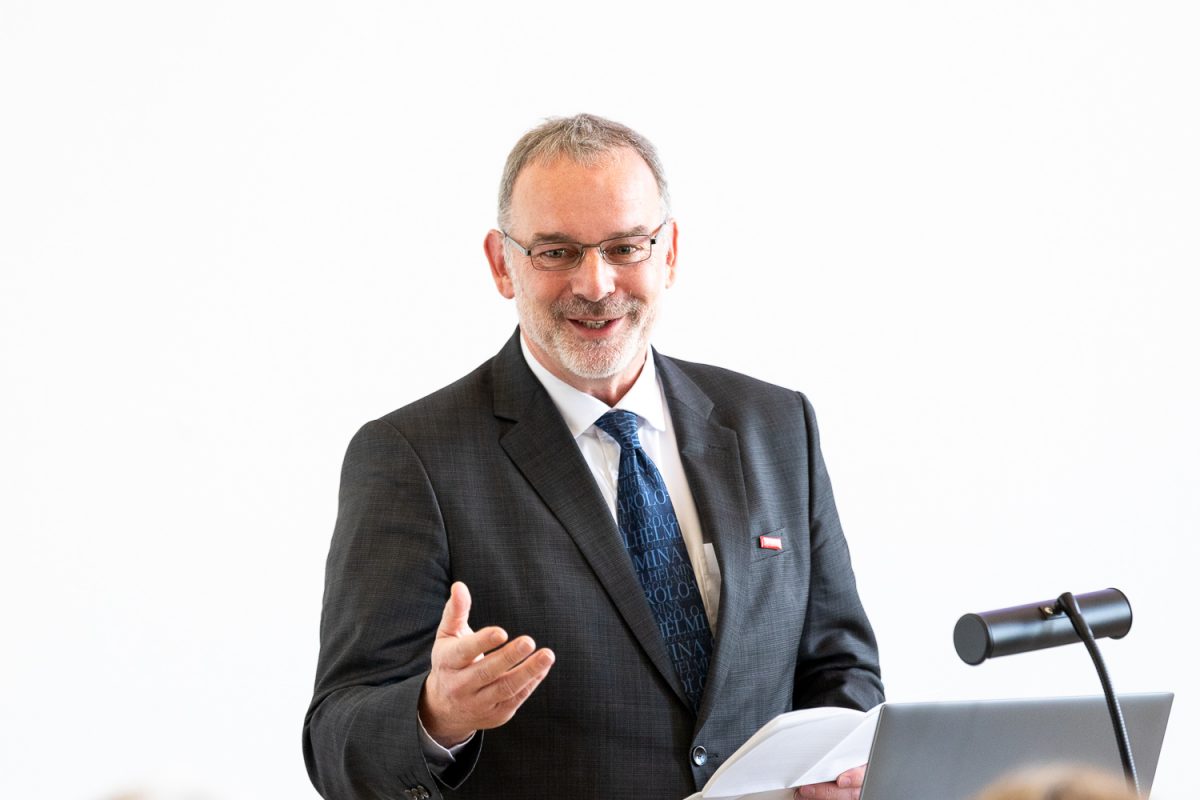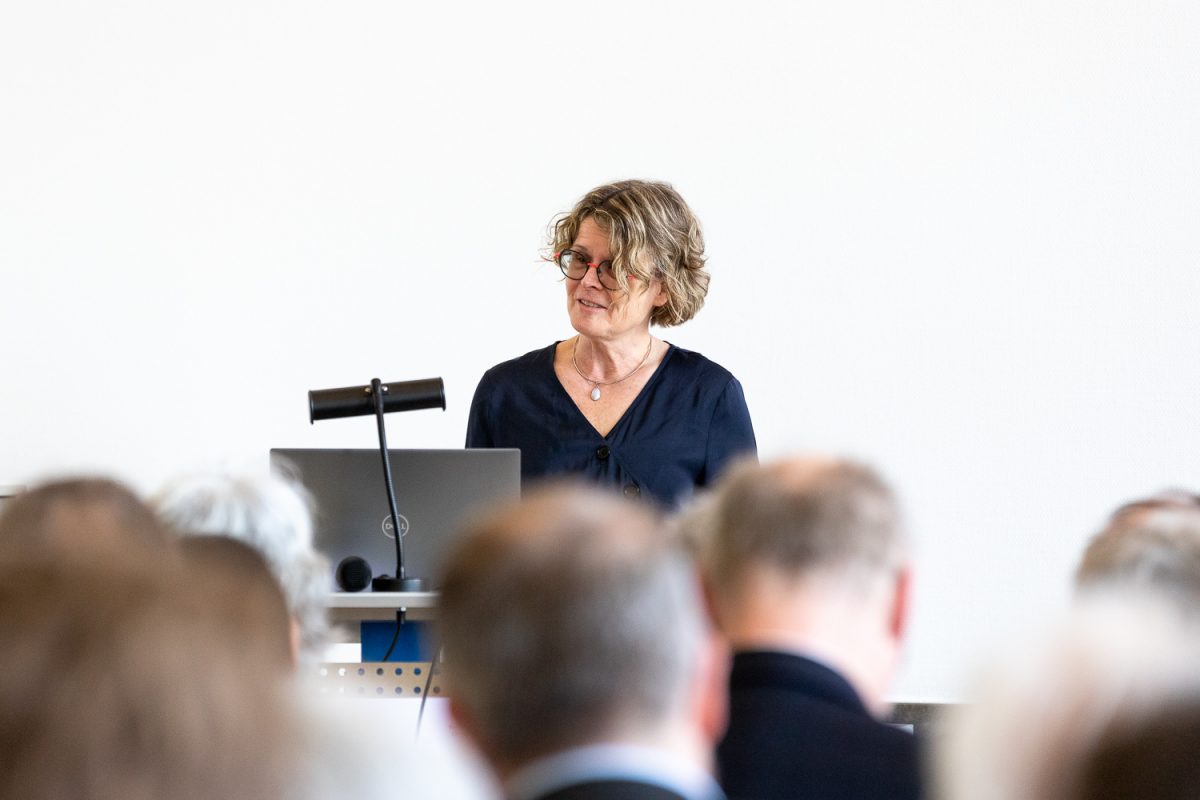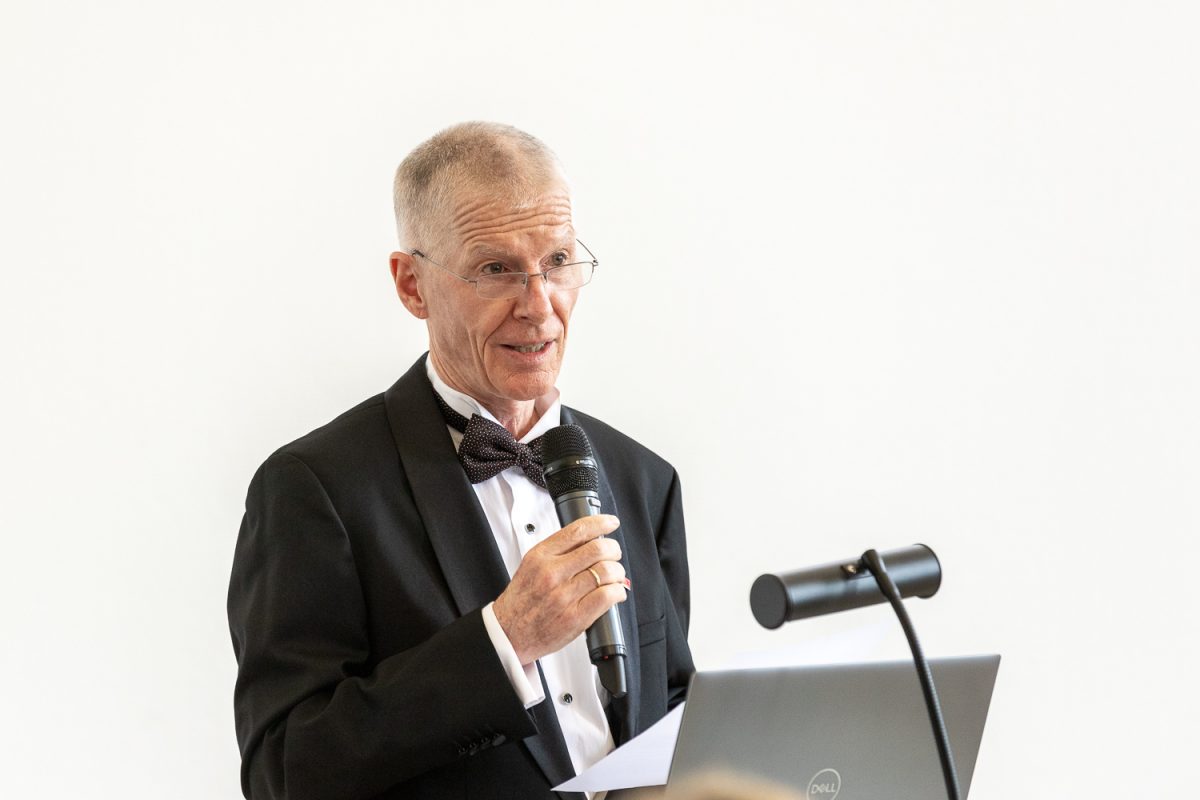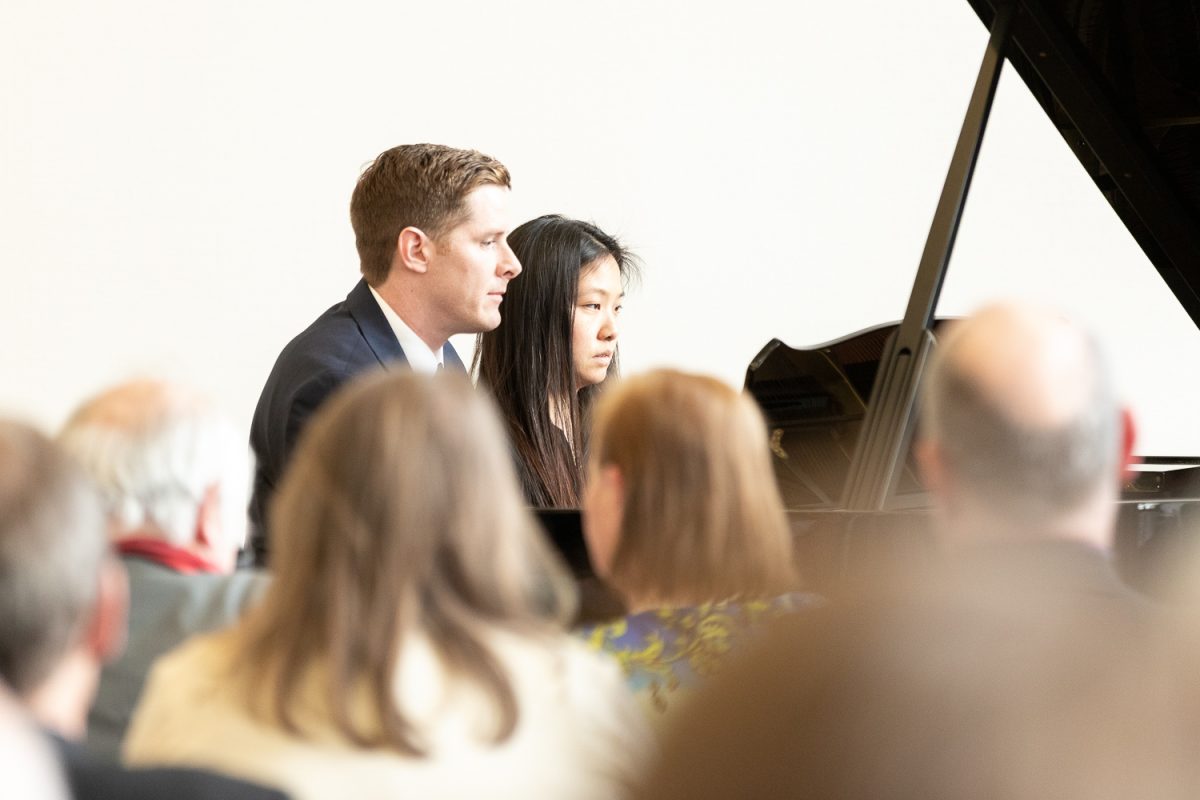TU Braunschweig awards honorary doctorate to Professor Rainald Löhner From underwater explosions to aerosol dispersion: scientist honoured for outstanding contributions to engineering
On 8 April 2025, the Faculty of Architecture, Civil Engineering and Environmental Sciences at Technische Universität Braunschweig awarded the scientist and alumnus Professor Rainald Löhner an honorary doctorate for his outstanding contributions to engineering. As Director of the Center for Computational Fluid Dynamics at the College of Sciences at George Mason University in Fairfax, Virginia (USA), Professor Löhner has set new standards with his groundbreaking work in the field of numerical modelling and simulation of the most complex phenomena.
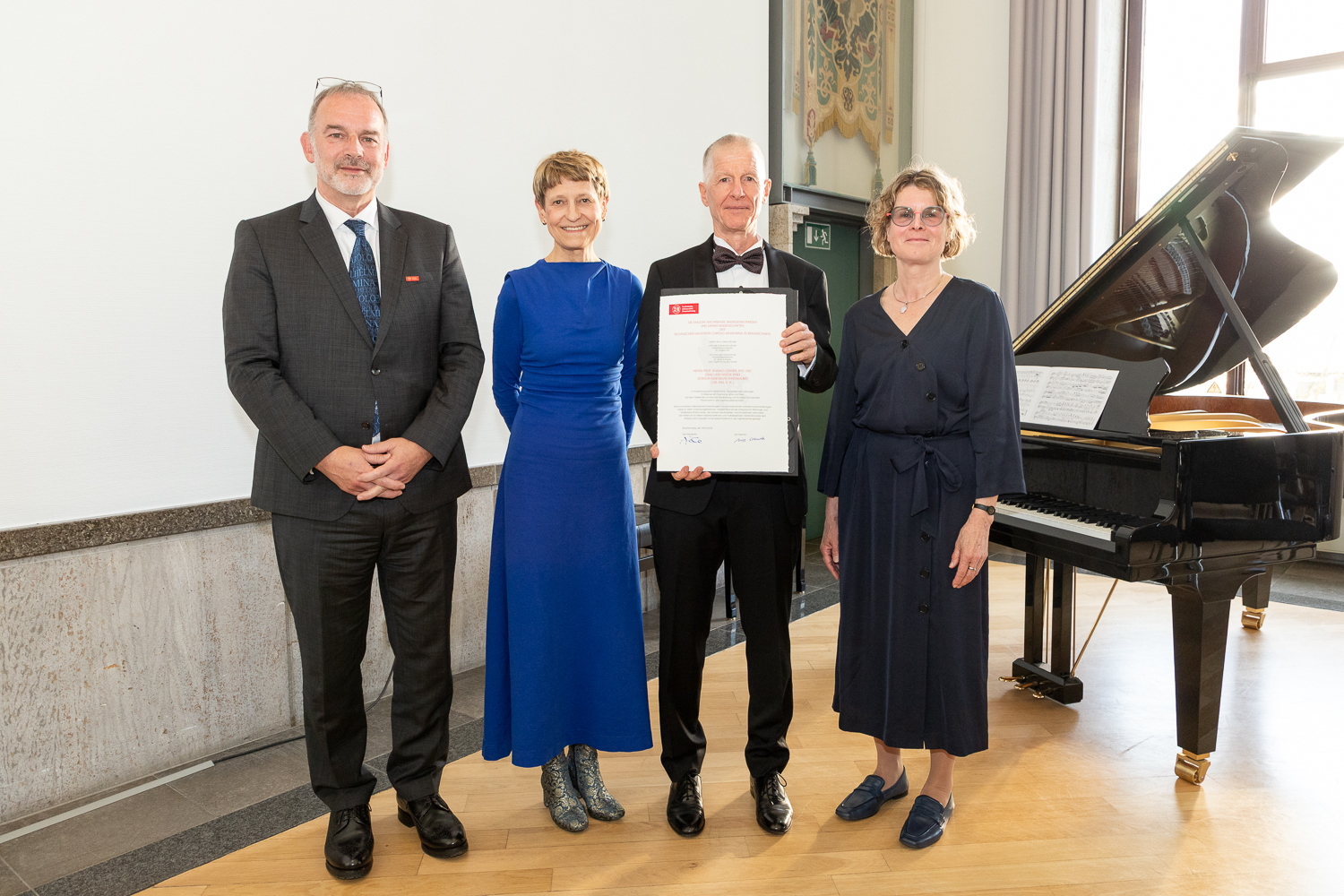
Professor Rainald Löhner with (from left) Vice President Professor Manfred Krafczyk, TU President Angela Ittel and Professor Antje Schwalb, Dean of the Faculty of Architecture, Civil Engineering and Environmental Sciences. Photo credits: Kristina Rottig/TU Braunschweig
“His innovative methodological developments and groundbreaking software implementations have pushed the boundaries of what can be modelled and simulated in many areas of application, particularly in the recording of flow and multiphysics phenomena,” the honorary doctorate certificate states.
“With this, we not only honour an extraordinary scientific career, but also a deep bond: the connection between a scientist and his alma mater,” says the President of TU Braunschweig, Angela Ittel. “Professor Löhner’s work combines the depth and precision of the German research tradition with the pioneering spirit and innovative spirit of American scientific culture. His career shows what is possible when you think and live across borders – geographically, disciplinarily and intellectually.”
During the presentation of the honorary doctorate, Professor Manfred Krafczyk, Chief Vice President for Digitalisation and Sustainability at TU Braunschweig, professed himself a ‘fan’ of the award winner, who, over four decades of work, has specialised in several complex fields of application, most of which concern human safety: “Rainald Löhner is one of a very small group of individuals who not only manage to be recognised as world-class researchers by publishing new ideas, but also successfully apply these new methods to solve problems that simply cannot be solved with the available commercial tools.”
Simulation of underwater explosions and material fatigue
Professor Löhner is a regular guest at the Institute of Statics and Dynamics at TU Braunschweig, where he works with staff and students on ‘High Fidelity Digital Twins’ – digital models that realistically map complex physical processes. His research focuses on the simulation of highly complex flows, such as those that occur during underwater explosions. He also works in the field of structural mechanics, in particular the simulation of material fatigue and the calculation of pedestrian flows.
Other important topics in his research include the spread of aerosols in air conditioning systems and buildings – an aspect that has been particularly important during the Covid-19 pandemic – as well as the effects of wind and water on structures and entire neighbourhoods.
Rainald Löhner also has a personal connection to Braunschweig: he was born in Braunschweig and graduated from TU Braunschweig in 1982 with a degree in mechanical engineering. He is also the great-nephew of Professor Kurt Löhner, the former rector of TU Braunschweig and head of the Institute for Combustion Engines (IVB).
About the person
Rainald Löhner went to school in Buenos Aires. He then studied mechanical engineering at TU Braunschweig and completed his doctorate in civil engineering at Swansea University, Wales. After working as a scientist in Wales and Washington, D.C., he joined the Institute for Computational Sciences and Informatics at George Mason University, Fairfax, Virginia, in the USA, in 1993, initially as an Associate Professor. Today he is Director of the Center for Computational Fluid Dynamics there.

